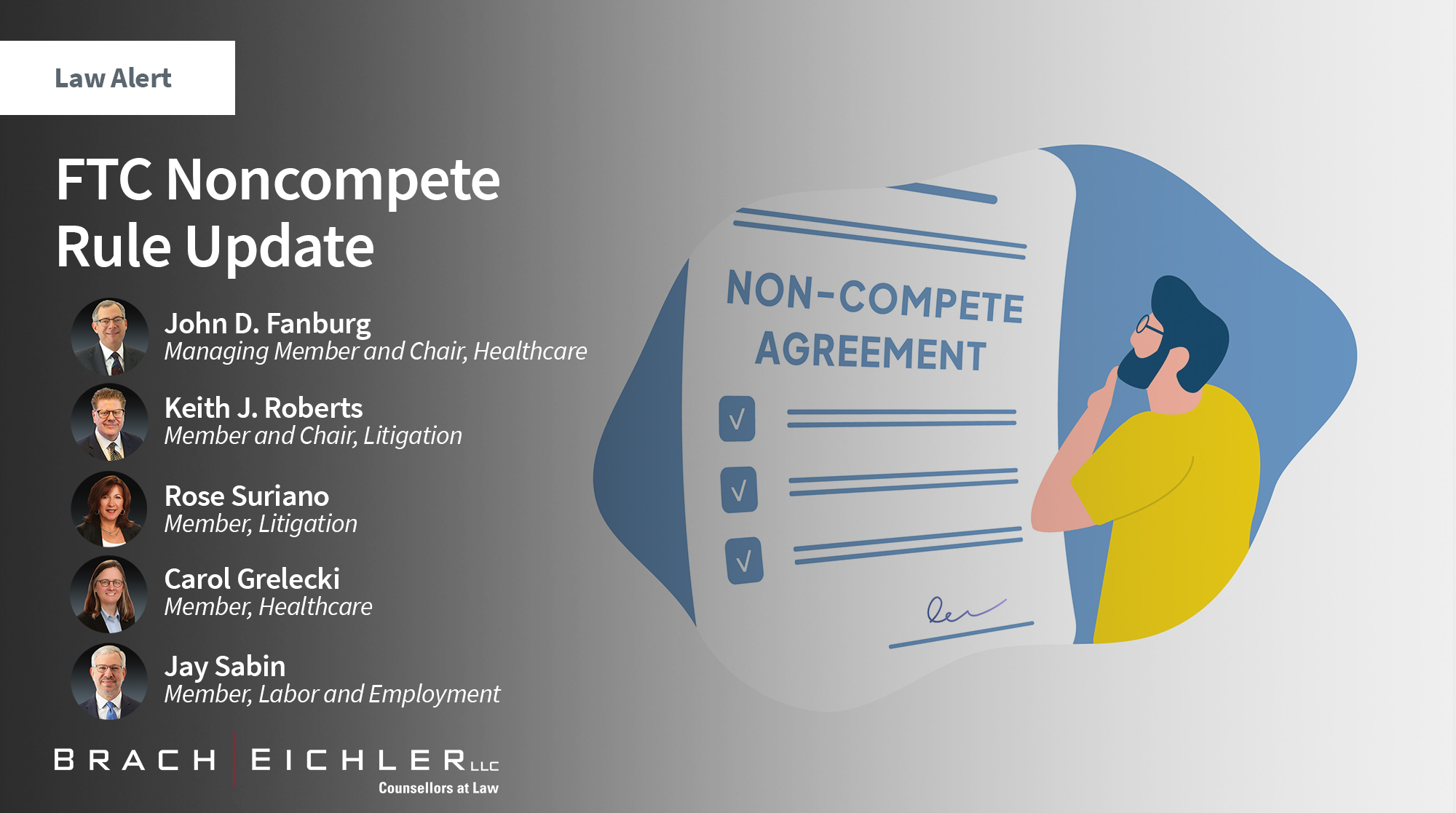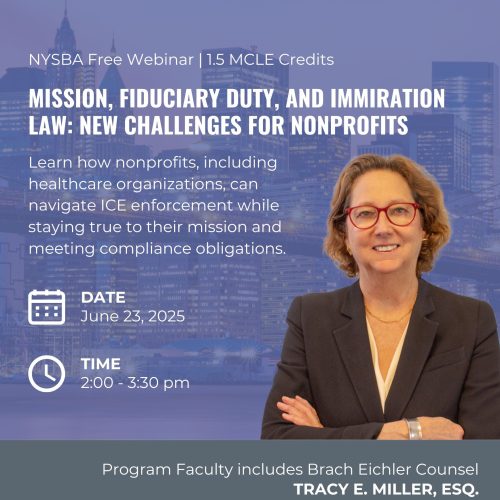FTC Noncompete Rule Update

7/10/2024
Last week, on July 3, 2024, U.S. District Court for the Northern District of Texas, one of the courts hearing a challenge to the FTC’s April 2024 non-compete rule, preliminarily enjoined the FTC from enforcing its rule against the named parties but did not extend the injunction to any other businesses. The court indicated that it would be issuing a final order by the end of August 2024. Thus, as of now every business in the United States, other than the named plaintiffs in this lawsuit, will be subject to the FTC non-compete rule on September 4, 2024, absent further judicial action.

Follow Us on LinkedIn
Stay updated with our latest news and insights.
We have previously published alerts about the scope and import of the FTC rule here and here and about the status of the lawsuits challenging the rule here. Because the Texas federal district court did not issue a nationwide injunction, businesses do not have any greater certainty about whether the rule will go into effect and will likely not get greater certainty until a few weeks – or perhaps only a few days – before the rule’s September 4, 2024 effective date.
Wait-and-see becomes less of a prudent option under these circumstances.
- For businesses with executives not currently subject to a non-compete agreement, the business’s leadership could consider whether to require its senior-most staff to sign non-competes before September 4, 2024. If the FTC rule goes into effect as scheduled, non-competes with executives will be excluded from the rule so long as the non-compete was entered into before September 4, 2024. In some jurisdictions, continued employment will be sufficient consideration to enforce the agreement; in other jurisdictions, additional consideration will be necessary. Making the decision, obtaining legal advice, and having compliance before September 4, 2024 will take careful planning over the Summer.
- For non-profit organizations, a careful review of the FTC’s jurisdiction over the organization should be conducted. The FTC does not defer to the IRS tax-exempt determination and instead uses a fact-specific, two part test that examines (1) the nexus between an organization’s activities and its alleged public purposes and (2) the ultimate recipient of the organization’s financial proceeds to assess the extent to which proceeds benefit public, not private, interests. The FTC “looks to both ‘the source of the income, i.e., to whether the corporation is organized for and actually engaged in business for only charitable purposes, and to the destination of the income, i.e., to whether either the corporation or its members derive a profit.’” Conducting this analysis, and consulting with the board of trustees, will similarly take time over the Summer.
Businesses should also seek guidance about how the U.S. Supreme Court’s June 28, 2024 decision in Loper Bright Enterprises v. Raimondo may change the likelihood that a court will enforce the FTC rule. That decision held that courts in general should be less deferential to the rules promulgated by federal agencies.
To obtain legal advice about the FTC non-compete rule, including its application to your organization, please contact:
John D. Fanburg, Esq., Managing Member, Chair, Healthcare Practice, Co-Chair, Cannabis Industry, at jfanburg@bracheichler.com or 973-403-3107
Keith J. Roberts, Esq., Member, Chair, Litigation Practice, at kroberts@bracheichler.com or 973-364-5201
Rose Suriano, Esq., Member, Litigation Practice, at rsuriano@bracheichler.com or 973-403-3129
Carol Grelecki, Esq., Member, Healthcare Practice, at cgrelecki@bracheichler.com or 973-403-3140
Jay Sabin, Esq., Member, Labor and Employment Practice, at jsabin@bracheichler.com or 917-596-8987
Related Practices: Healthcare Law, Litigation, Labor and Employment
Related Attorney: John D. Fanburg, Keith J. Roberts, Rose Suriano, Carol Grelecki, Jay Sabin
Related Industry: Healthcare

















